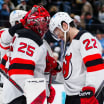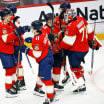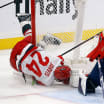Barzee, Lester Patrick Trophy winner, fueled by passion over six decades
Former USHL coach, scout to be honored for outstanding service to hockey in U.S.
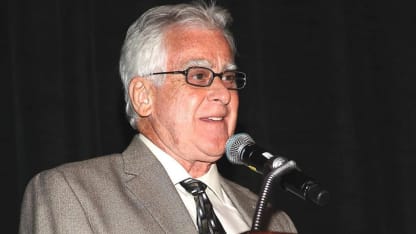
"The one thing my wife (Kathy) told me was nobody really thought you could handle the things you accomplished," Barzee said. "You had to keep proving yourself, over and over, but that's what made me go, what made me tick.
"I didn't have a college degree, wasn't a rocket scientist, but experience is the best teacher and while I didn't have a paper degree, I had 27 other degrees of survival."
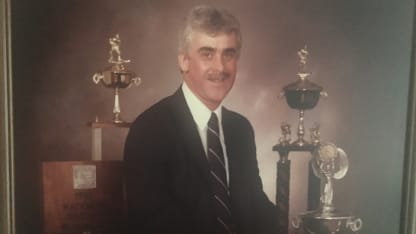
The 80-year-old said he is most proud of the fact he helped transition the United States Hockey League from a senior to a junior league in the mid-1970s. He helped bring junior hockey to Dubuque, Iowa, for the first time in 1980 and later became an advocate for United States-born players as one of the finest projectors of hockey talent as a fulltime scout with NHL Central Scouting.
Barzee will be honored with the 2021 Lester Patrick Trophy during the United States Hockey Hall of Fame Induction ceremony in Denver on Dec. 9.
Lynn Olson will receive the 2020 Lester Patrick Trophy, which was presented to the NHL by the New York Rangers in 1966 to honor Patrick who spent 50 years in hockey as a player, coach, general manager and was a pioneer in the sport's development. The 2020 US HHOF ceremony was postponed by the pandemic.
The event also honors 2021 inductees Stan Fischler, Paul Holmgren and Peter McNab along with the Class of 2020 recipients Dean Blais, Tony Granato, Jenny Potter and Jerry York.
"You cannot talk about the USHL without mentioning Jack, from a playing perspective, coaching perspective, building perspective, or wisdom perspective," said Waterloo Black Hawks president of hockey operations P.K. O'Handley. "Jack's personality, at times, maybe rubbed people the wrong way but if he didn't do that, I'm not sure the USHL would be what it is today."
Barzee was working in the elevator business in the summer of 1973 when he got word that the Waterloo franchise was for sale. He made a phone call to an existing board member of the Black Hawks and was told the sale of the team would be finalized four days later.
"I asked my friend on the board if he would help me put a group together to make a proposal to purchase the team," Barzee said. "We had 24 hours to put a group and a proposal together to buy out the existing team for 50 cents on the dollar of their debt and carry forward the loss."
Waterloo operated as a senior team with paid players from 1973-77 before starting a three-year transition into a roster consisting of unpaid junior-aged players (17-20 years old).
"One owner of a furniture business in Waterloo used to have four season tickets and he said, 'I'm not going to watch a bunch of high school kids play' and I said, 'Well, they're the future of hockey,'" Barzee said. "No one understood at the time, but they would."
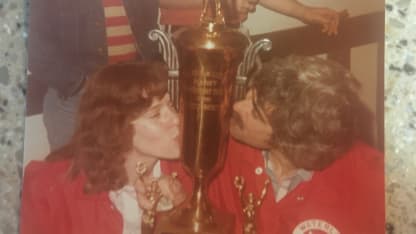
Waterloo, Green Bay and Sioux City decided to merge with the Midwest Junior League, which at the time had three Minnesota-based junior teams: St. Paul, Bloomington and Austin. The six teams created the USHL's new junior product beginning in 1979-80.
In 1980-81, Barzee brought a team to Dubuque and found immediate success, winning the Clark Cup as champions of the league three times in the first five years (1981, 1983, 1985).
"I'm most proud of the part I played in the transition of the USHL from a senior to junior hockey league," Barzee said. "I wasn't trying to run anything, but just trying to make it better."
Barzee has been USHL Executive of the Year (1976-77 with Waterloo), Coach of the Year (1978 with Waterloo; 1981 and '83 with Dubuque) and GM of the Year (1983, Dubuque).
"Jack had good instincts about the league, good instincts about its growth, what things had to be done, and so I visited with him constantly ... he was a special guy," said Gino Gasparini, former USHL commissioner (1994-2003) and president (2003-09).
Following eight seasons of success with two USHL franchises, Barzee went on to a 27-year career as a professional scout. He spent four seasons as chief U.S. scout for the Washington Capitals (1989-90 to 1992-93) and 23 seasons with NHL Central Scouting before announcing his retirement after the 2012 NHL Draft in Pittsburgh.
Barzee and his wife of 53 years have two sons, each a high school hockey coach in Minnesota, and five grandchildren.
"[Barzee] was always around the game and always going full throttle with passion," said NHL Central Scouting senior manager David Gregory. "It was always about getting it right and being passionate and not just accepting. He made us so good as a group."
Barzee had great scouting instincts.
"He understood that there had to be more projection when you're looking at players out of the U.S.," Gregory said. "He had the experience to say a guy like T.J. Oshie was going to be a stud. Oshie was great in high school at the time but everyone else was saying, 'Well, so what, he's doing this in high school.' Well, he's doing it now in the NHL and the Olympics.
"Jack knew how to make that projection and not be afraid to stand up for a player even though he was playing at a high school level or sometimes a midget level."
Barzee said most of his projections were gut instincts based on traditional tactics.
"Sometimes the most talented players don't always work the hardest but can step up and win a game for their team," he said. "Hockey is a fast game and speed is very important whether it's in your feet, hands or head. If you are a top athlete and have all three of these characteristics, chances are you are one excellent prospect."
Barzee fought hard for the separation of high school players from those playing in the USHL on NHL Central Scouting's annual list of North American skaters.
"He asked if the USHL could have its own separate ranking because they were always lumped in with the U.S. high schools and, over time, we did it," said Dan Marr, Director of Central Scouting. "That's the one thing about Jack; his heart is always in the right place. He does have opinions, and he does voice them, but it's voiced with passion."
Chris Edwards was a full-time scout with NHL Central Scouting for 15 years before becoming the NHL's manager of officiating in 2016. He remembers well the scouting meetings when Barzee pounded the table in defense of players in his region.
"Jack was one of the funniest human beings on the planet," Edwards said. "The only guy who could out-talk him was E.J. McGuire. E.J. would joke about his phone calls with Jack lasting the entire morning. It was always unclear if either guy was listening to the other, though."
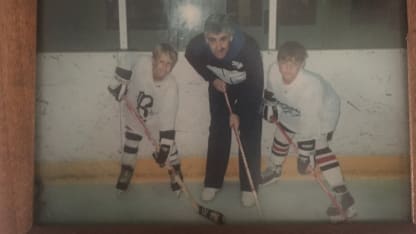
McGuire, the director of central scouting from 2005-2011, died in 2011.
"I think with everything he's accomplished in hockey he's always put people first and that's a great part of why everybody loves Jack," Gregory said. "You can battle with Jack, and I mean discuss players or whatever, but it will never offset the fact that he's just a great human being."

